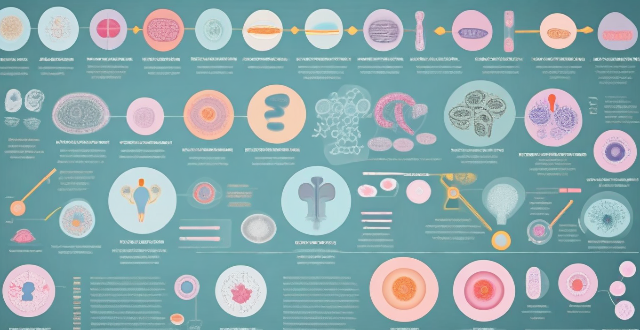Menstruation Hygiene

Is it safe to use scented feminine hygiene products ?
This article discusses the potential risks and benefits associated with using scented feminine hygiene products. Possible risks include allergic reactions, hormonal imbalances, and environmental impact, while benefits include personal comfort, confidence, variety, and enjoyment. It is important for individuals to consider their own needs and preferences when choosing whether or not to use scented feminine hygiene products and to consult with a healthcare professional regarding any concerns or questions about specific products.

Can poor personal hygiene lead to skin problems ?
Poor personal hygiene can lead to a variety of skin problems, including bacterial and fungal infections, irritation and inflammation, and other conditions. To prevent these issues, it's important to practice good hygiene, such as regular showering, wearing clean clothes, hand washing, moisturizing, and sun protection.

How can I teach my children about the importance of personal hygiene ?
Teaching personal hygiene to children is crucial for their development. Start with basic concepts and gradually introduce more complex ones as they grow. Emphasize hand washing, covering mouth while coughing, daily bathing, and teeth brushing. Lead by example, make hygiene fun, educate consistently, and use visual aids. Handle resistance with negotiation, incentives, and explaining consequences. Maintaining hygiene habits requires ongoing education on puberty, menstrual hygiene, etc.

Why is personal hygiene important for those who handle or prepare food ?
Personal hygiene is critical for food handlers due to its impact on health, safety, and quality assurance. Cross-contamination and allergen transfer can lead to illnesses, while cleanliness affects food presentation and flavor. Handwashing, proper grooming, and workstation cleaning are essential practices to maintain hygiene.

What role does nutrition play in maintaining personal hygiene ?
The article emphasizes the importance of nutrition in maintaining personal hygiene. It suggests consuming nutrient-rich foods, developing healthy dietary habits, and supporting the immune system through nutrition to improve overall health and hygiene.

In what ways does poor personal hygiene impact mental health ?
Poor personal hygiene can negatively affect mental health by causing decreased self-esteem, social isolation, and exacerbating symptoms of mental health disorders. It is important to maintain good hygiene habits for overall well-being.

What is the significance of regular bathing in personal hygiene ?
Bathing regularly is essential for maintaining good personal hygiene, offering benefits such as dirt and sweat removal, prevention of body odor, promotion of blood circulation, stress and anxiety reduction, and maintenance of good grooming habits.

What is the significance of personal hygiene in food handling ?
Personal hygiene is crucial for food safety, public health protection, and maintaining quality in the food industry. It prevents cross-contamination, reduces disease transmission, and enhances food quality. Adherence to personal hygiene standards impacts regulatory compliance, consumer trust, and economic implications within the food industry.

How does one's personal hygiene affect their social interactions ?
Personal hygiene is crucial for positive social interactions, boosting confidence, and maintaining good health. Good hygiene habits include regular bathing, teeth brushing, wearing clean clothes, hand washing, and taking care of skin and hair. Poor hygiene can lead to social isolation, misunderstandings, and health risks. Following simple tips can ensure that personal hygiene positively impacts social interactions.

Is there a difference between personal hygiene and cleanliness ?
Personal Hygiene and Cleanliness are often used interchangeably, but they have distinct meanings. Personal hygiene focuses on the individual's physical well-being, while cleanliness focuses on the environment's tidiness and orderliness. Both are essential for maintaining good health and preventing the spread of infections.

Can using certain feminine hygiene products cause infections or irritation ?
"Can Using Certain Feminine Hygiene Products Cause Infections or Irritation?": This article explores the potential risks associated with using various feminine hygiene products, including infections and irritation. It provides tips on how to prevent these risks by choosing appropriate products, practicing good hygiene, and consulting a healthcare provider if necessary. The article emphasizes the importance of using these products correctly and mindfully to maintain personal hygiene without compromising one's health.

What are the risks associated with poor personal hygiene on health ?
This article discusses the risks associated with poor personal hygiene on health. It highlights various infections and illnesses that can occur due to poor hygiene practices, including skin infections, respiratory infections, gastrointestinal infections, urinary tract infections, sexually transmitted infections, and mental health issues. The article emphasizes the importance of maintaining good personal hygiene habits to prevent these health risks and promote overall well-being.

How often should I wash my hands to maintain good hygiene ?
Washing hands is an essential part of maintaining good hygiene. It helps prevent the spread of germs and diseases, especially during these times of COVID-19. Here are some tips on how often you should wash your hands: before eating or preparing food, after using the bathroom, after coughing/sneezing/blowing your nose, before touching someone else's face, and after handling dirty objects. It's important to wash your hands frequently throughout the day to maintain good hygiene and prevent the spread of germs and diseases.

What steps should be taken to maintain good hygiene during travel ?
The text provides a comprehensive guide on maintaining good hygiene during travel. It emphasizes the importance of packing essential hygiene items, keeping hands clean, practicing safe eating habits, staying clean and fresh, being mindful of surroundings, keeping living spaces clean, and following local customs. The article underscores that maintaining good hygiene is crucial to staying healthy and enjoying a pleasant travel experience.